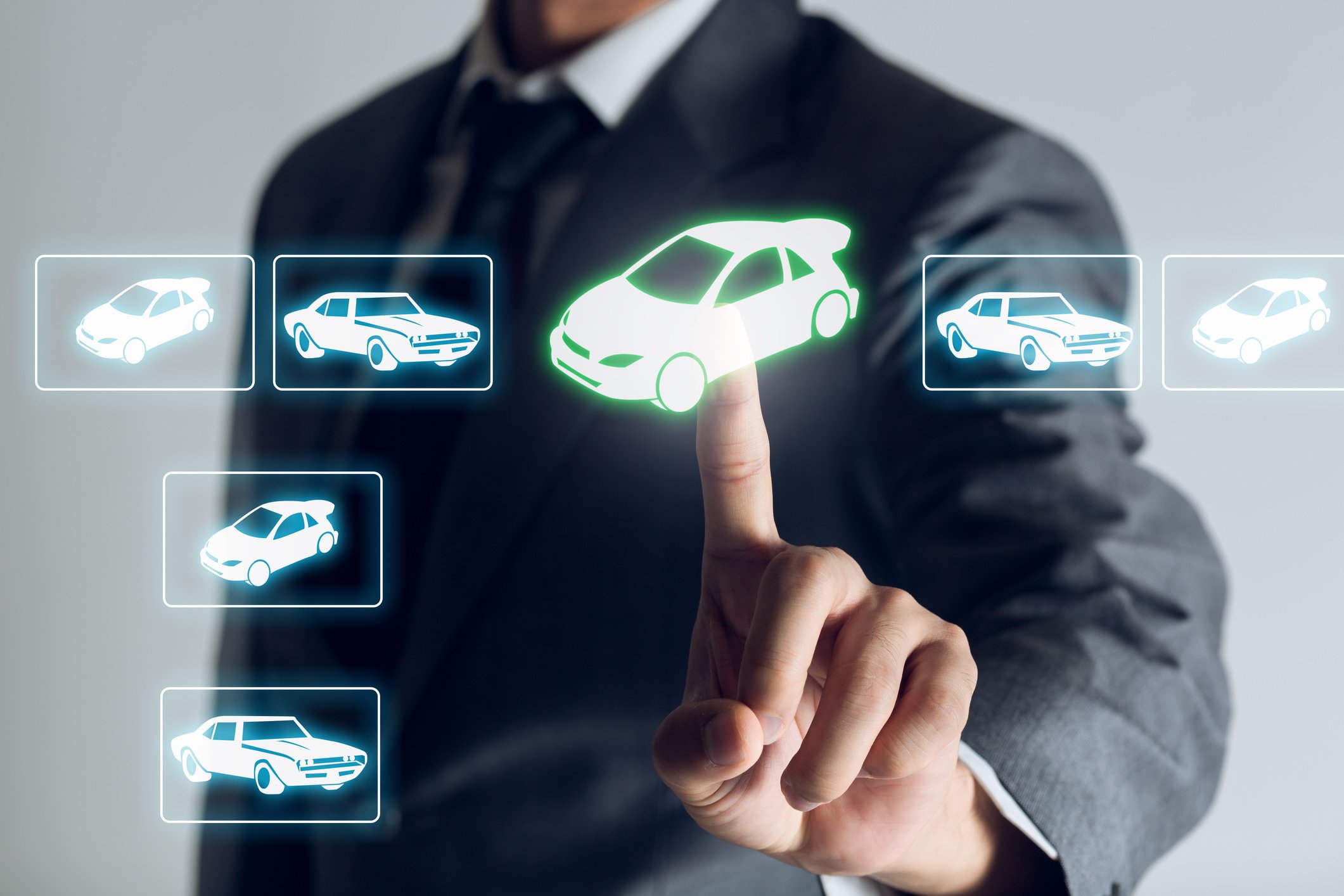- Blog
- 2023 Electric Vehicle Trends: The Rise of EV Remarketing
2023 Electric Vehicle Trends: The Rise of EV Remarketing
Read all about the opportunities, challenges, and unanswered questions of electric vehicle remarketing as EVs take centre stage of European transportation.
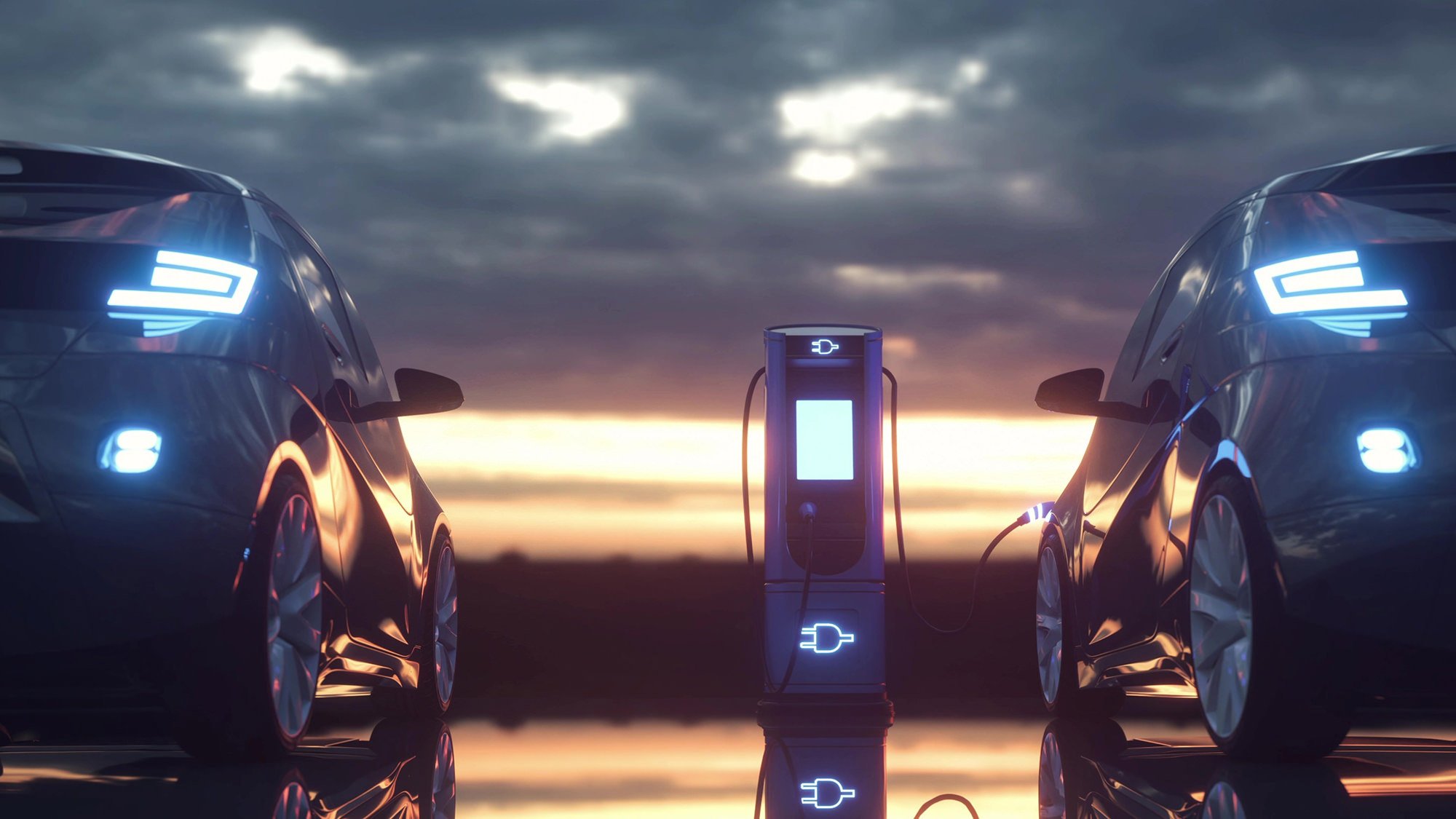
With the global shift to green energy and cleaner transportation, it’s clear that electric vehicles are going to be taking up a larger role in the future of car remarketing.
However, since EVs are fundamentally different to internal combustion engine (ICE) cars, their remarketing is going to require its own framework and set of business practices.
This article discusses the opportunities, as well as the challenges, that will shape the future of EV remarketing, and provides a starting point for car dealers interested in learning how this expanding trend will impact their businesses.
Let’s start by looking at some recent legislation that’s sure to set the stage for an electric vehicle takeover in Europe.New electric vehicle legislation paves the way for remarketing
It’s no secret that Europe’s future, as far as transportation is concerned, is Green. Recent legislation at European, as well as the level of individual nations, calls for the reduction of internal combustion engine (ICE) vehicles and an expansion of electric vehicles (EVs).
The most significant piece of evidence here is the Fit for 55, legislative package of the EU, which includes provisions for making all European cars and vans emissions-free until 2035.
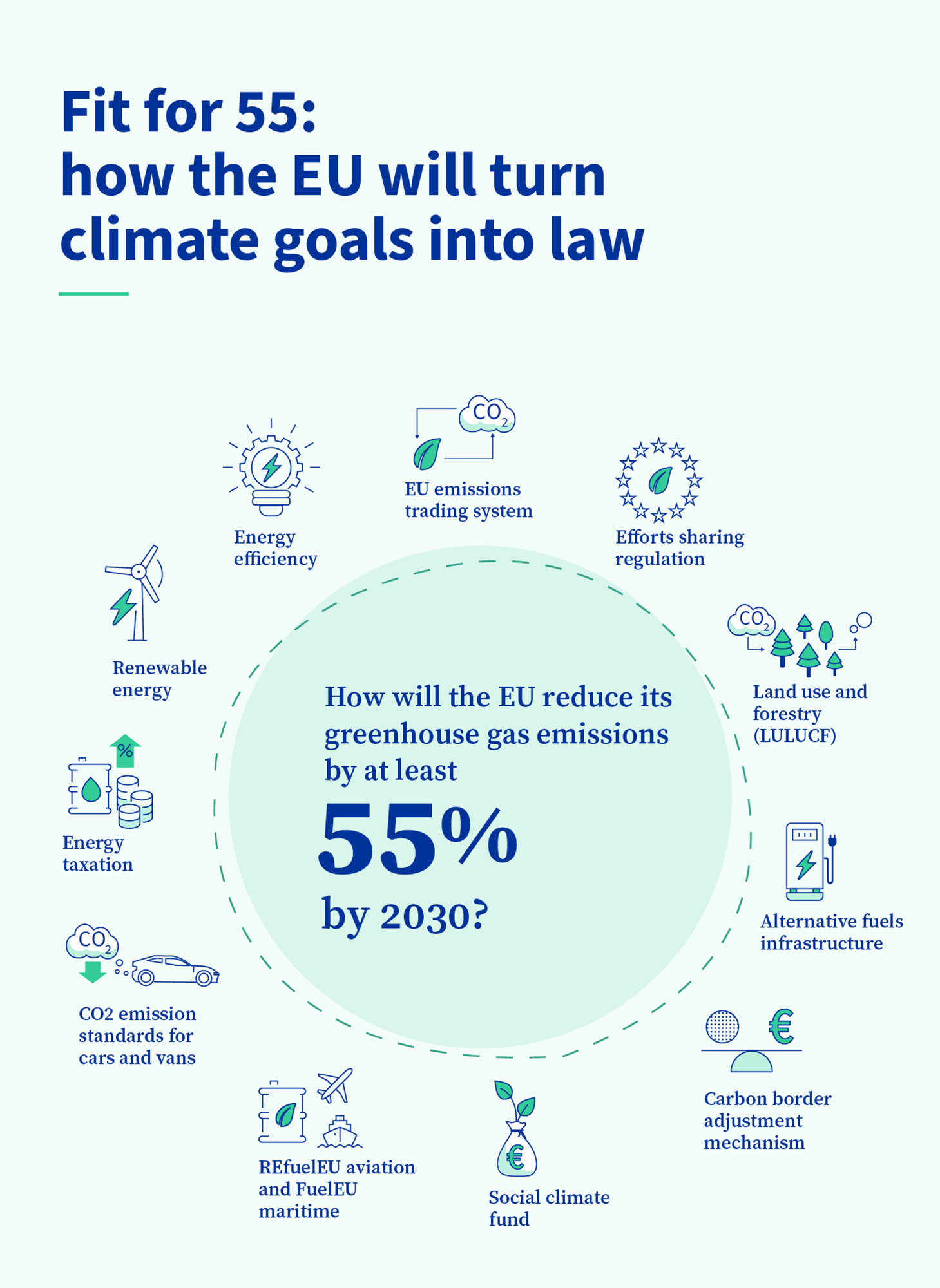
Fit for 55, EU legislative package to make all cars emission-free by 2035
Commenting on this effort, Frans Timmermans, the Executive Vice-President for the European Green Deal explains the important role car manufacturers will play:
“The agreement sends a strong signal to industry and consumers: Europe is embracing the shift to zero-emission mobility. European carmakers are already proving they are ready to step up to the plate, with increasing and increasingly affordable electric cars coming to the market.”
EU members are even quicker on the uptake. For instance, Belgium has adopted new legislation that will allow only electric company vehicles to be tax deductible by 2026, effectively making EVs the most feasible option for companies operating in the country. France provides a complete or partial exemption from acquisition tax and many purchase incentives, while Germany offers an incredible 10-year exemption from any ownership taxes.
For a detailed overview of benefits in each EU country, check out ACEA's extensive 2022 list of electric vehicle tax benefits.
All of this comes on top of the many incentives and tax breaks available to EV buyers in the EU. As it now stands, 21 countries have made opting for EVs more attractive by offering acquisition and ownership benefits, as well as incentives.
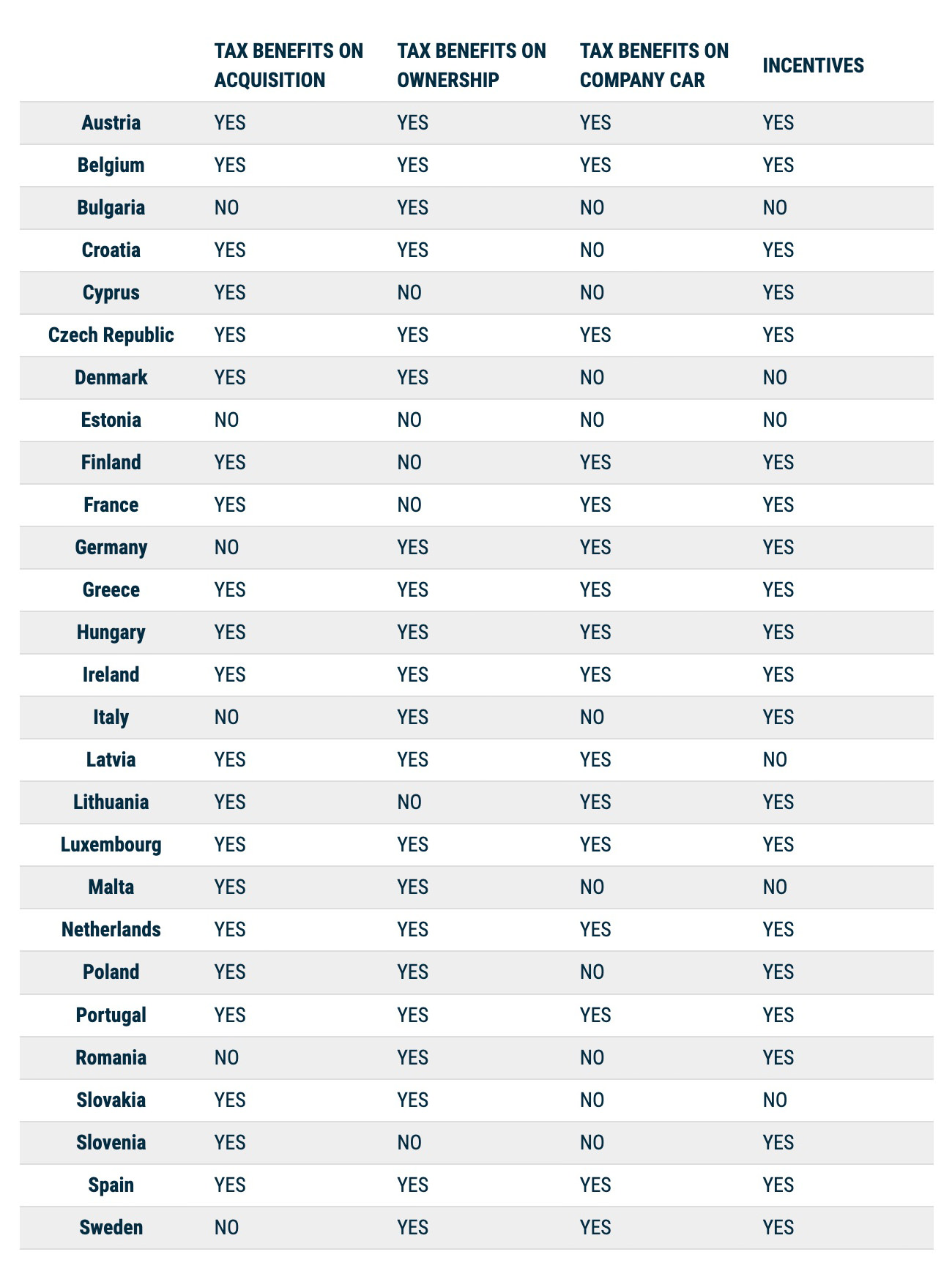
ACEA infographic about tax benefits for electric vehicles in various EU countries
So, what can car dealers and automotive professionals take away from this?
Well, primarily that buyers will have every reason to buy electric in the future, not just because there are so many tax benefits and incentives to look forward to, but also because it’s becoming increasingly clear that ICE vehicles are slowly being phased out of European transportation.
With the trend of company cars moving more and more in the direction of electric vehicles, these cars will inevitably end up in the remarketing pipeline. And at the end of this pipeline, they will come to you, car traders and dealers. Does the future bring a market saturated with electric vehicles?
The seed of this future has already been planted as EVs are gradually taking over the European market, which is the topic of our next section.
Electric vehicle sales are at an all-time high
The fact of the matter is that the electric vehicles that will one day be remarketed are already driving on European roads, as the demand for these vehicles has never been higher.
Owing to the beneficial legislative and tax climate, but also the rising awareness of climate change and the technological advances that have made EVs safer and more efficient than ever, sales have been skyrocketing for some years now.
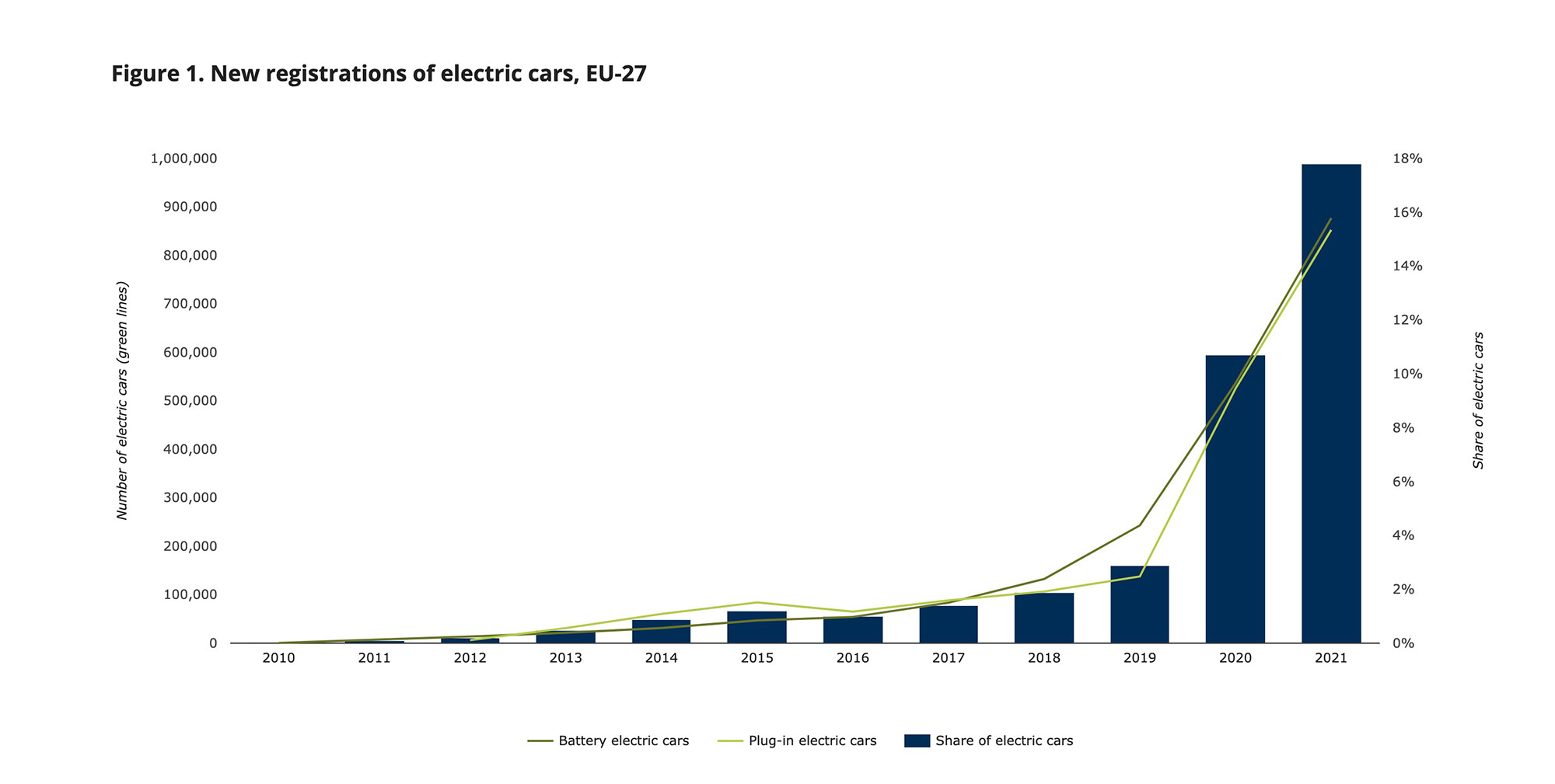
Infographic showing the rise of new electric vehicle registrations over 10 years
In the period of just one year, from 2020 to 2021, sales have grown a whopping 66%. Mind you, this impressive growth happened before the great energy crisis of 2022, which is sure to push EV sales even further. This, of course, raises the question of demand exceeding supply in this market, a problem that the automotive industry has been struggling with for a while now.
And while it’s true that this remains an issue (for example, Volkswagen reported a backlog of 300,000 battery electric vehicles for Western Europe in 2022), things seem to be easing up in this regard, too.
This is partially thanks to new players, such as China, slowly penetrating the European market with EV imports. China’s EV production is expected to soon surpass domestic demand, meaning we’re going to be seeing quality brands such as Geely, BYD, and SAIC expand their presence in Europe.
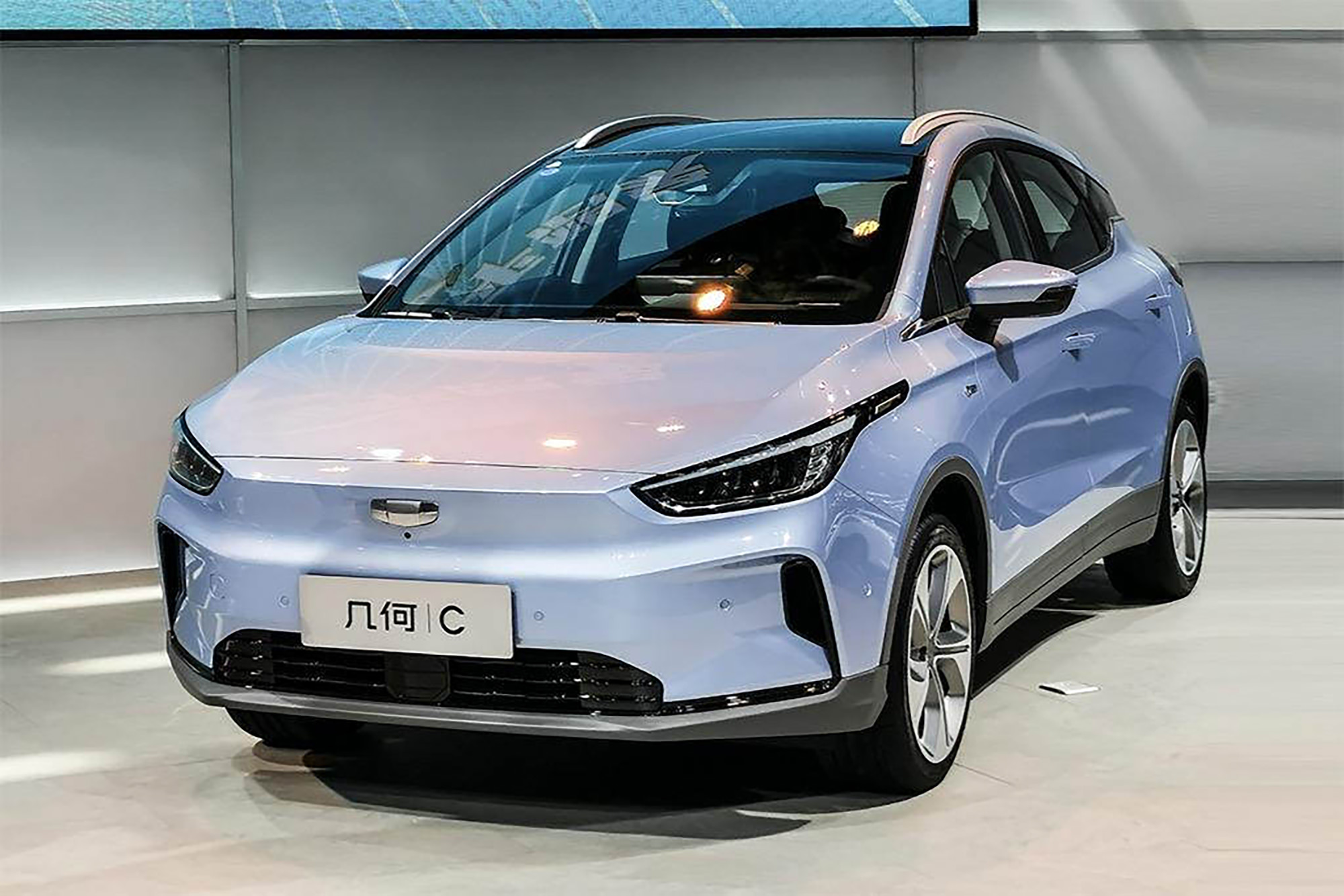
2020 Geely Geometry C (Jihe C) electric vehicle
As a matter of fact, the export figures for Chinese electric cars are projected to grow from 70,000 to as much as 350,000 in the span of just three years (from 2022 to 2025).
All of this is good news for European dealers because the impressive growth of the EV market and the appearance of new players in it brings forth new business opportunities. This expansion will definitely also reflect in the number of vehicles that will need to be remarketed, so dealers should definitely prepare for a future where EVs feature prominently in vehicle remarketing.
The EV remarketing framework is still under construction
With all that’s been said so far, it’s clear that European dealers are currently seeing the dawn of EV remarketing because the generation of electric vehicles that have been bought in this boom will soon reach the end of their fixed term and become available for remarketing.
In these circumstances, many factors are still unknown, and industry standards are yet to be built. The main issue here is the one component that separates electric vehicles from internal combustion engine cars: the battery.
The currently available data simply isn’t comprehensive enough to provide a clear picture of how vehicles with used batteries can be systematically remarketed. The reason for this is simple. EVs haven’t been around long enough for us to know exactly how their batteries degrade over time. For example, if we were to look at the battery degradation rates for a Tesla Model S or a Nissan Leaf, we could only track the process back seven years.
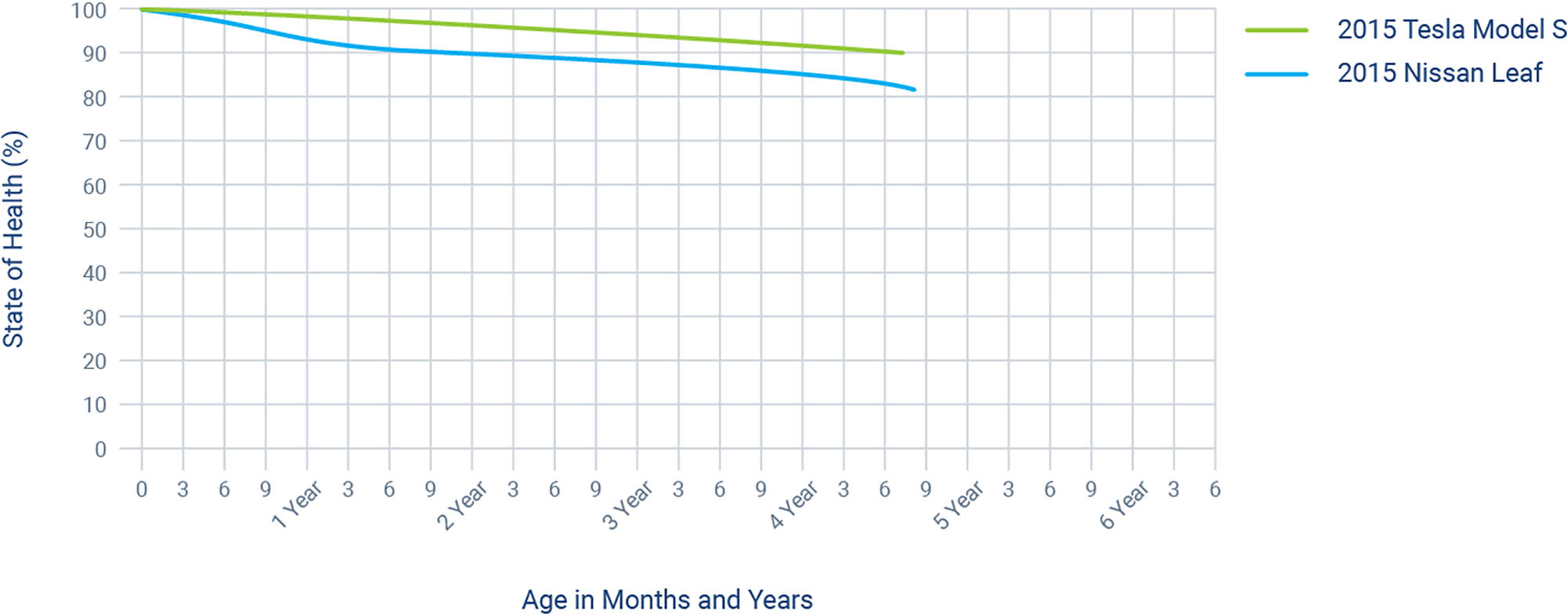
Battery degradation of electric vehicles after years of use
Martin Forbes, president of Cox Automotive International, sums up the conundrum quite well:
"We’ve only just seen the first wave of EVs coming through remarketing but there’s very little data about the battery health of those early models. The battery is the most important and expensive element in them and we need more information about its condition when it comes to remarketing."
The solution here might lie in battery-health certification, a document that would extend the battery’s warranty and guarantee that it’s in good condition and may be resold with the vehicle.
Secondly, a significant segment of this B2C consumer base will be first-time EV buyers, meaning they’ll want to do more extensive test-driving than dealers might be accustomed to.
What does this mean for you, a car trader? If you’re interested in experimenting with purchasing electric vehicles for your B2C car trading business, be prepared that our clients will most probably be first-time EV buyers and they might want to do more extensive test drives. This could be a huge opportunity for your business to stand out from your competitors.
Car traders who could provide services such as battery certification or extended vehicle testing would add value to their offer and pave the way for selling remarketed electric vehicles.
Electric vehicle challenges to consider
Every new market opportunity brings with it some challenges to overcome, and selling electric vehicles is no different. Here are some to consider.
Transportation
Electric vehicles are considerably heavier than their ICE counterparts because of their weighty lithium battery. In fact, some of these cars come close to 2.5 tons in curb weight. Take a look at this table below and compare it to the corresponding ICE models (the Jaguar XJ, for instance, weighs 1,796 kg).
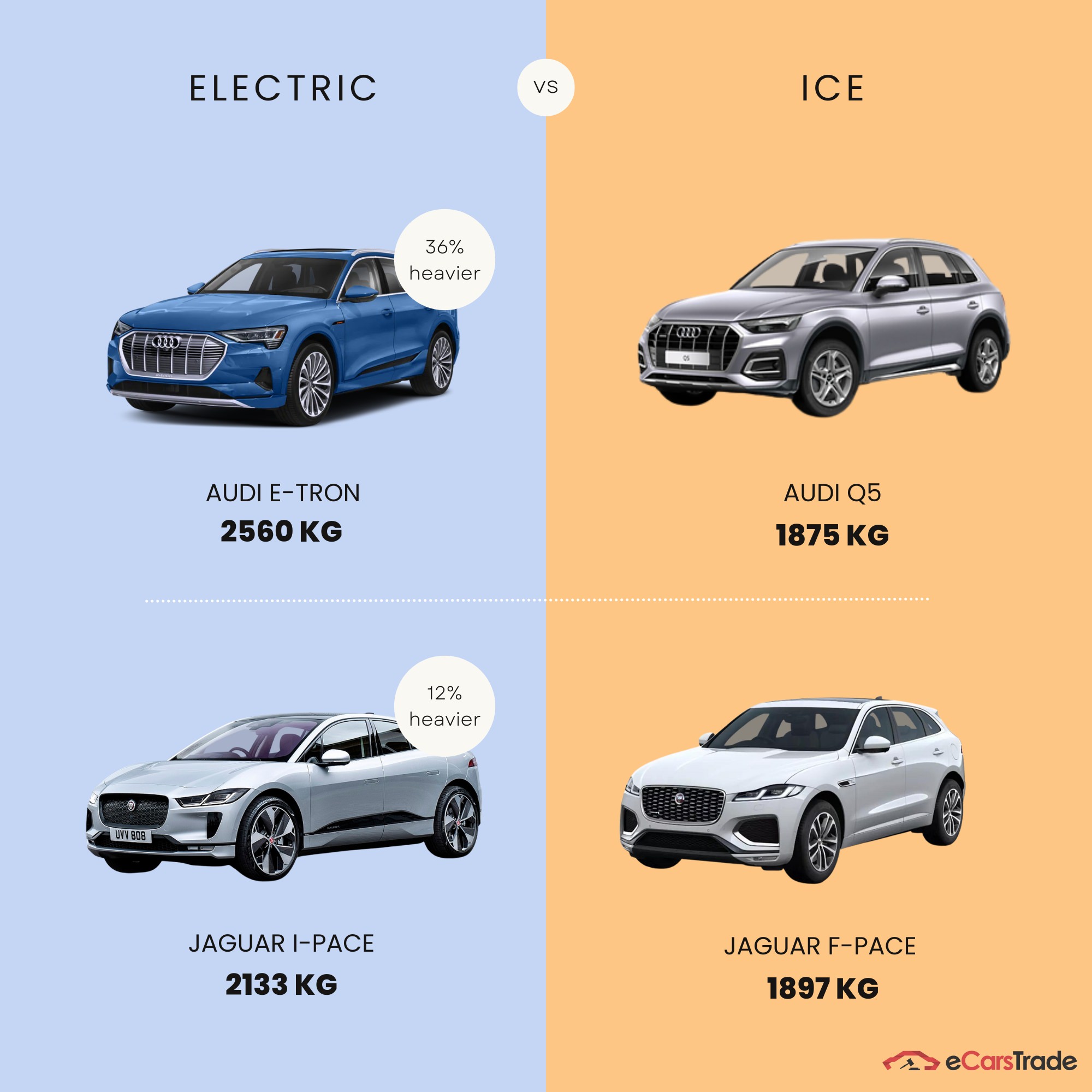
This poses a logistics challenge because normal car carriers will be able to transport fewer cars. However, with EV technology developing at such a rapid pace, so it’s only a matter of time before EV batteries go down in weight.
Storage
ICE vehicles can easily be stored with an empty tank and then topped up with a jerry can when you need to move them from storage to the road (in a test-drive scenario, for example).
EVs, on the other hand, need to be charged before you store them for an extended period of time. "The best option is to charge your battery to no more than 50% before leaving your car parked for an extended period of time", Renault advises for their electric cars.
There are also alternative solutions in case you need a quick top-up like the ZipCharge travel battery pictured below.
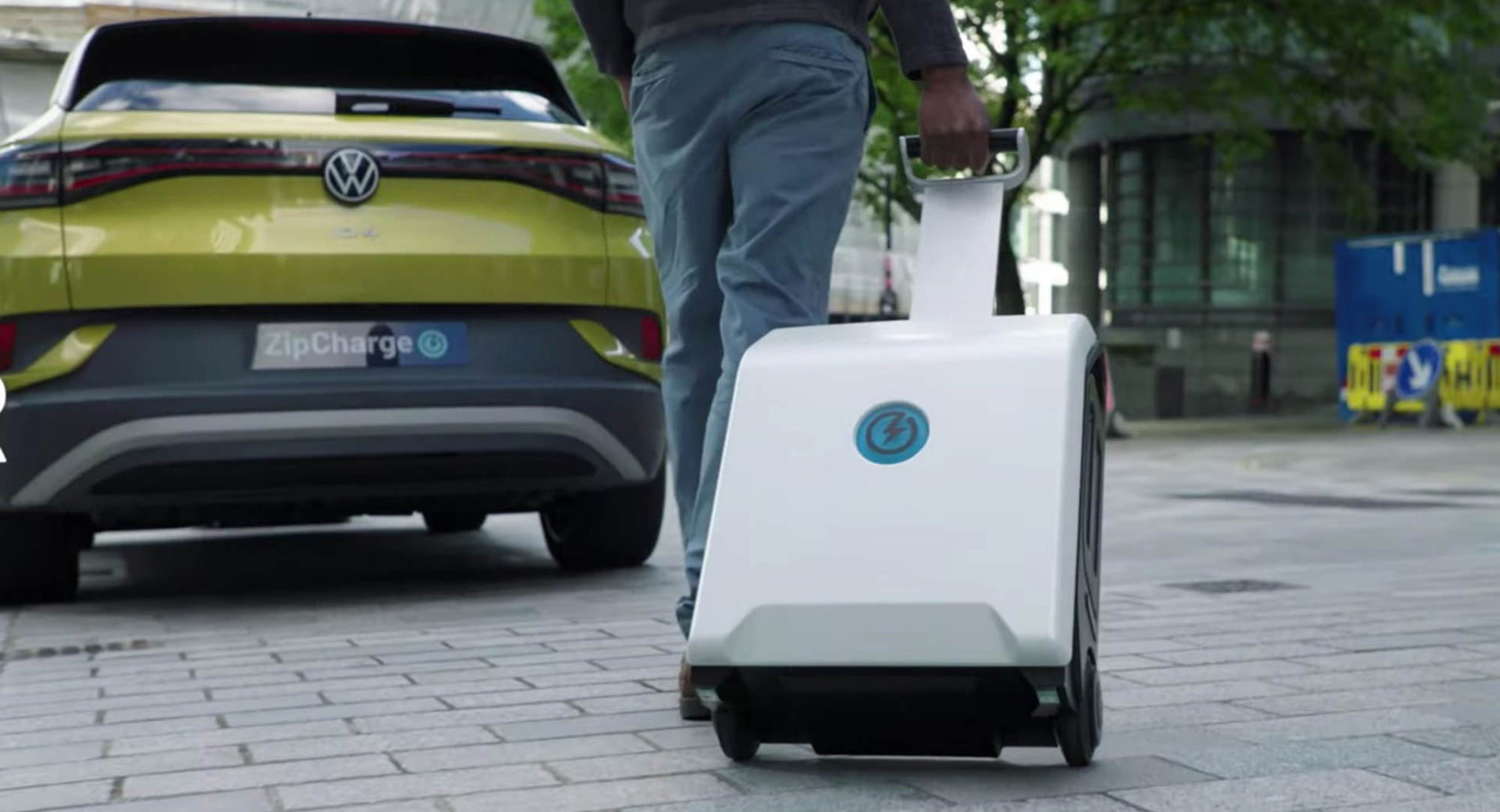
If you acquire an electric vehicle for your car trading business, keep in mind you will need to have charging points installed at your premises or at least have them somewhere close by. Thankfully, there are so many EV charging infrastructure incentives that you can benefit from!
Batteries
Another challenge connected to storage has to do with lithium-ion batteries. At the moment, lithium batteries are impacted by something called “thermal stability”:
"Lithium ion batteries under certain conditions are not safe. There is a phenomenon known as thermal runaway, which can end up causing the battery to catch fire, with the consequent risk to the occupants of the vehicle.”, explains Antonio García from CMT-Motores Térmicos - a state-of-the-art research facility dedicated to propulsion systems of the future.
Any storage space you allocate for EVs will, for the moment, need additional fire safety provisions. But the good news is that scientists are already hard at work figuring this out.
Javier Monsalve, a professor at CMT-Motores Térmicos says:
"We are applying our more than 40 years of work focused on combustion engines to understand this phenomenon that affects lithium-ion batteries. We want to know even the smallest detail of the combustion process in batteries to help make them as safe as possible. And we already have our first results."
In conclusion, EVs are becoming such an integral part of the European automotive market that it’s only a matter of time before these challenges are overcome.
Resources to help with reselling electric vehicles
It’s clear that electric vehicle remarketing is an expanding industry where many unknowns are still waiting to be solved. In this situation, car dealers can use all the help they can get to ensure a smooth sales process of used EVs, and there are multiple resources that can help them on their way.
For instance, there are currently players on the market that offer battery-health certification, which we discussed in a previous section of this article. One of them is the Moba Certificate, available to car traders in France.
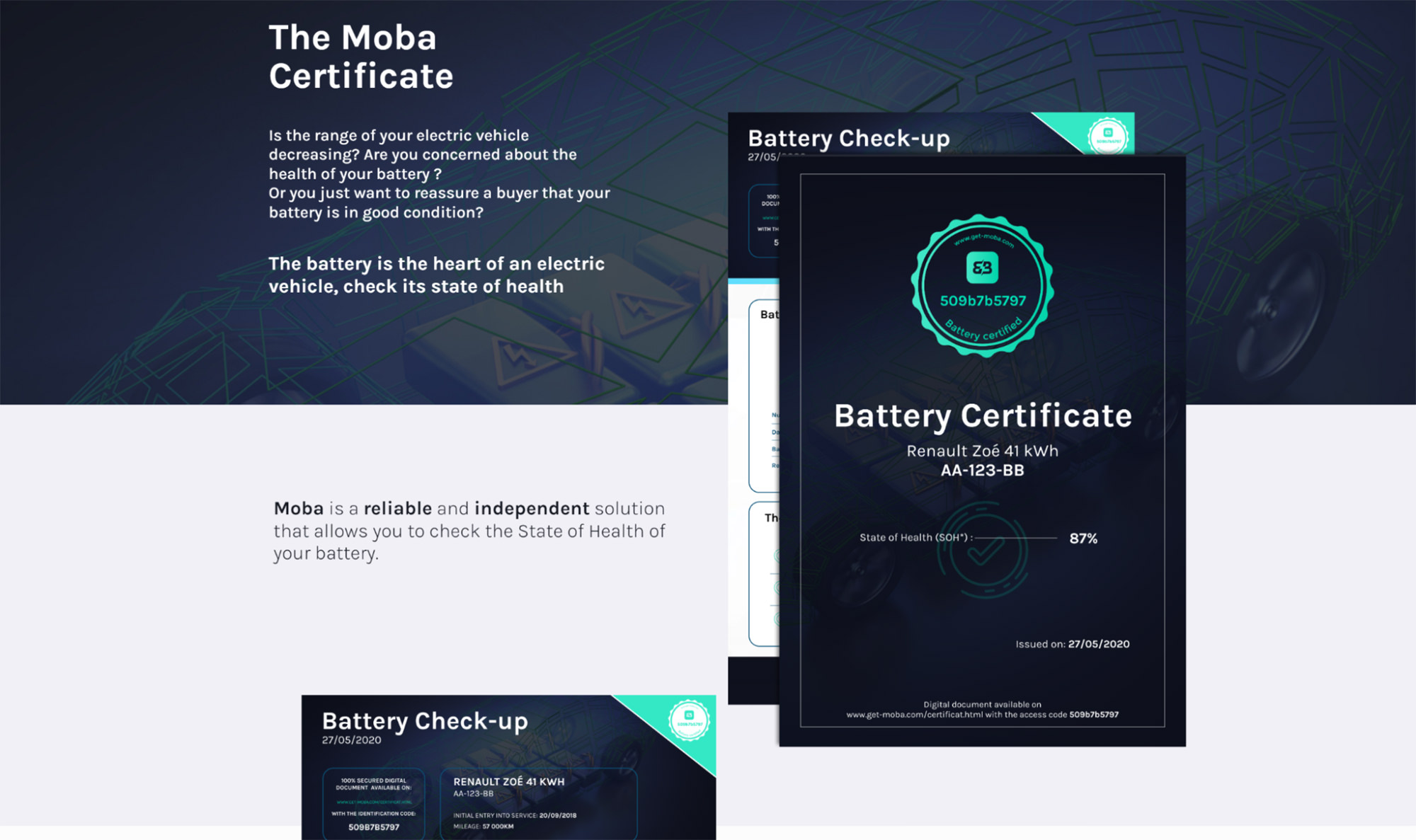
Battery health certification by Moba Certificate
The procedure is quite simple. The company provides the interested party with the equipment they need to test their car battery themselves and then issues an official certificate that details the battery’s state of health. This can be of great assistance to dealers who need proof of battery health before they can sell the vehicle to their clients.
We’re aware of the various challenges electric vehicles bring, but also of the opportunities. As the future looks inevitably green and electric, we here at eCarsTrade want to foster a sense of community and trust, and help you figure out ways in which you can invest in EVs and thrive with your business.
That’s why we believe that the cornerstone of trust is working exclusively with trusted leasing companies and dealerships. At eCarsTrade, we are in close contact with leasing companies that have been in the business for years and are currently experiencing an influx of electric vehicles. Their experience with the storage, safety and transport of electric vehicles will be invaluable, and we’ll be able to pass on that knowledge to our clients.
That’s why it’s so important for car traders to choose an auction platform that is equipped with knowledge, motivation, and a passion to take on any challenges of the future, electric or other! After all, it’s better to face challenges together than alone.
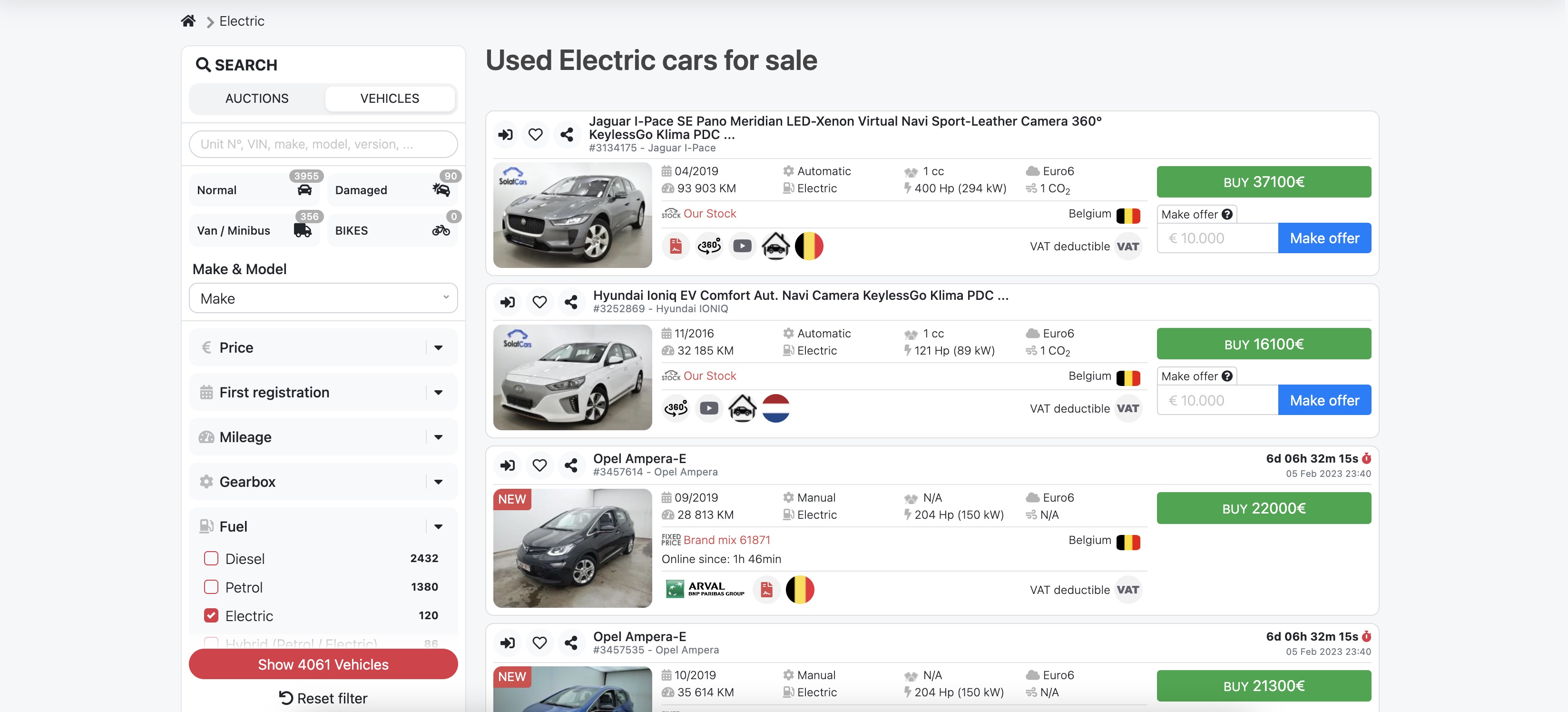
See our selection of electric vehicles on eCarsTrade
Electric vehicles - the way of the future
The shift to electric vehicles looks like it’s going to be inevitable for European dealers at some point.
The current legal framework and the state of the EV market both point to the conclusion that electric vehicles are going to become the norm in Europe. That means that these vehicles will soon dominate the remarketing segment as well, and the challenges will eventually be overcome.
As a first step into this exciting new field, head on to eCarsTrade and check out our wide selection of used electric and hybrid vehicle auctions.
